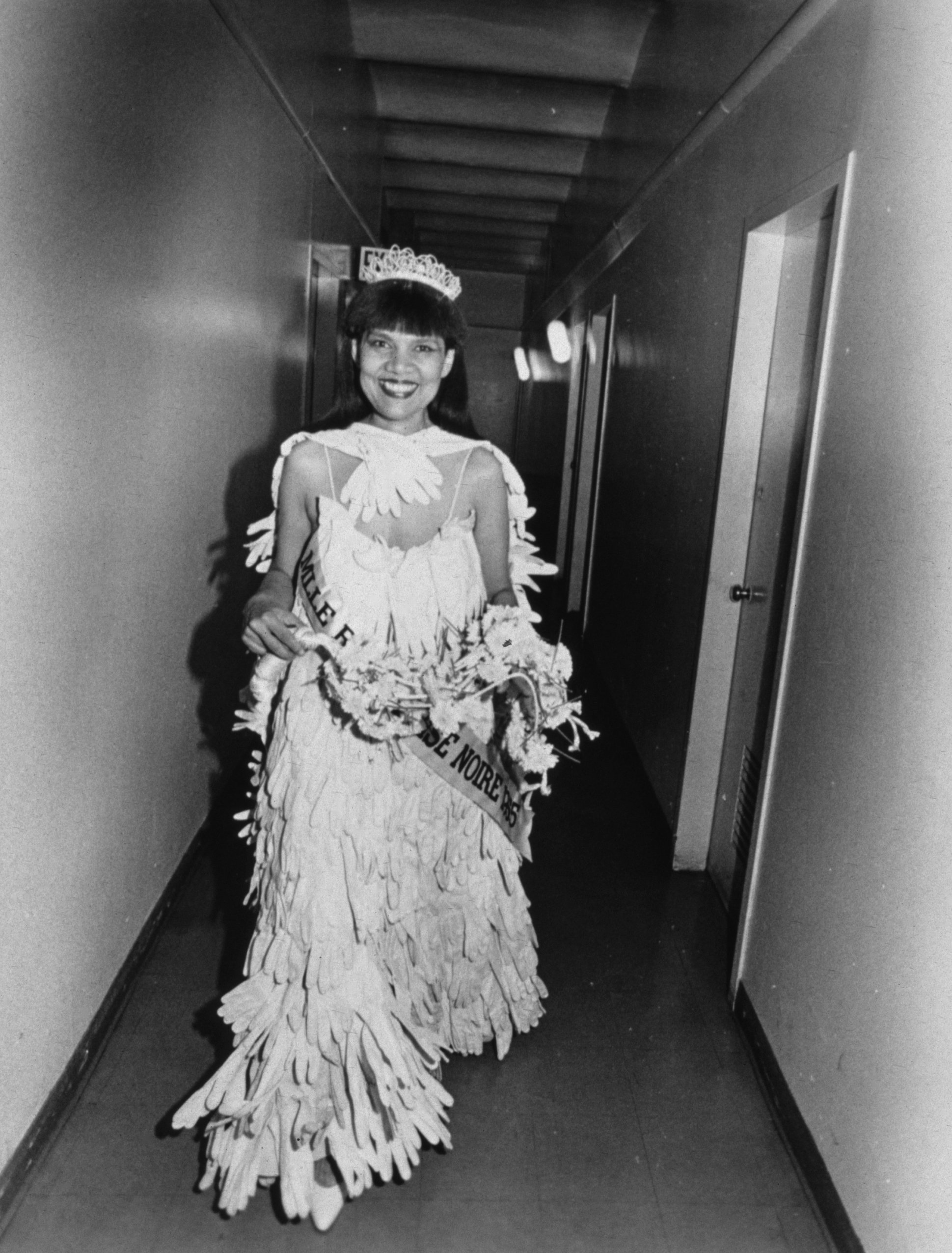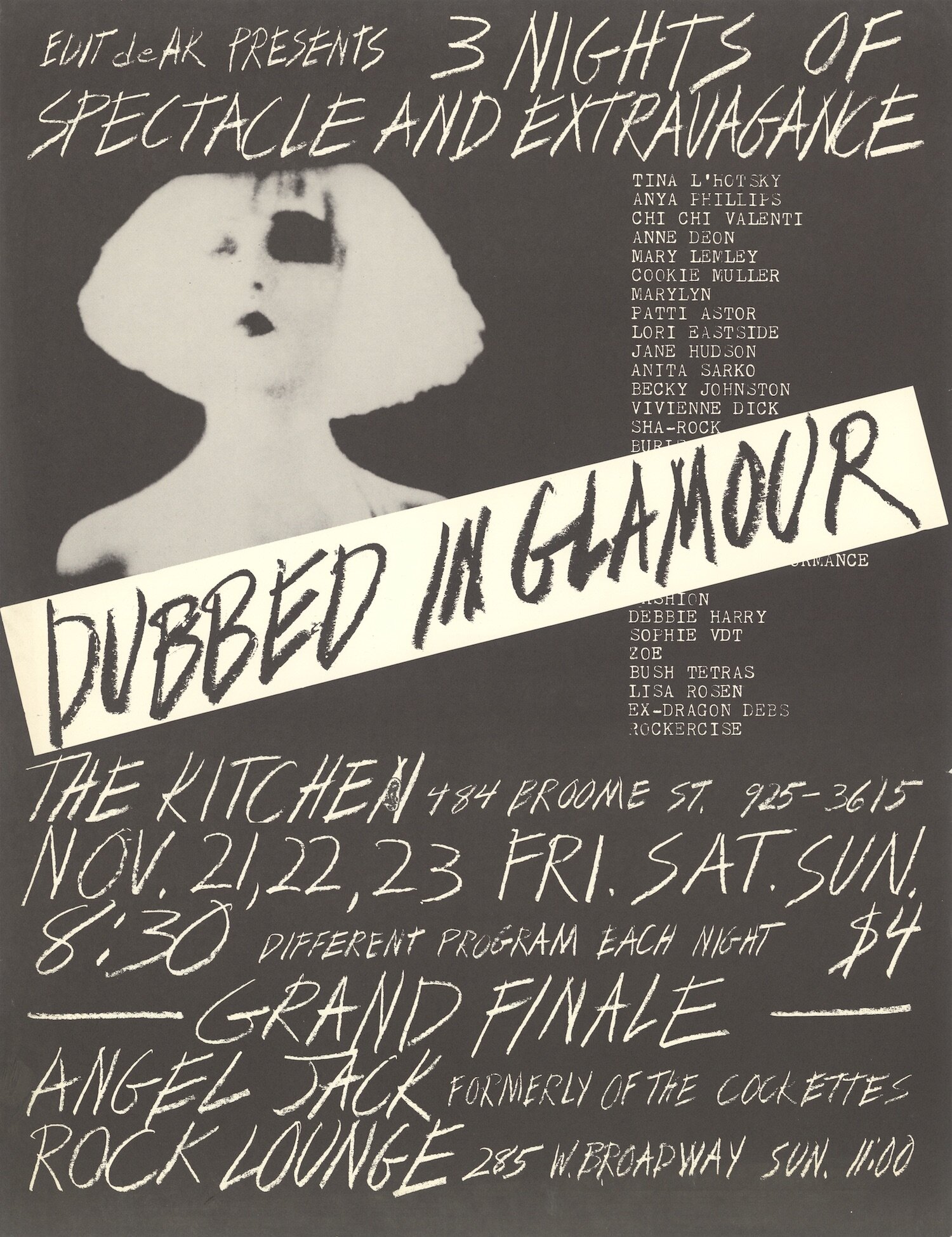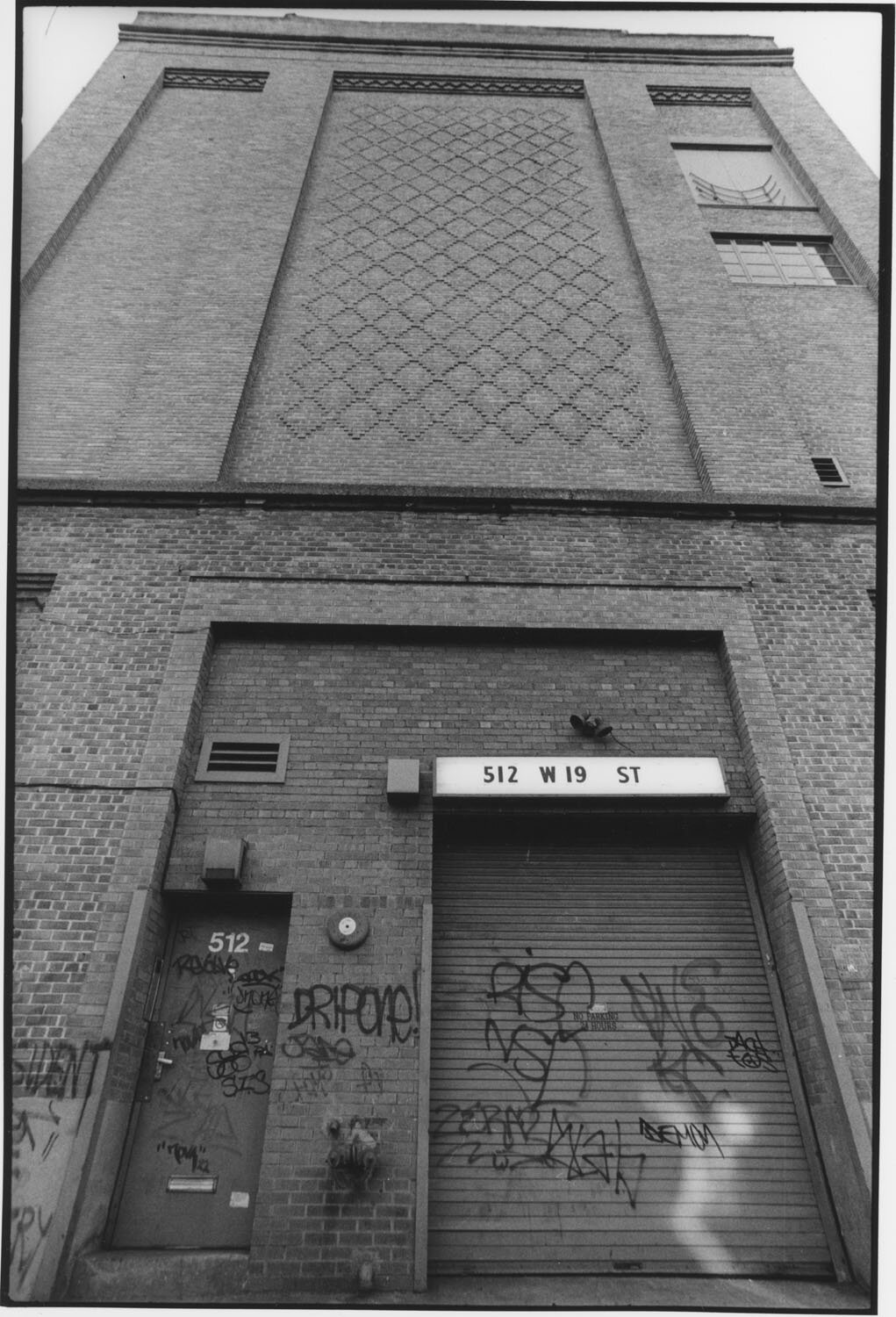Kitchen Magazine: From the Archives
On May 25, 26, and 27 1982, The Kitchen screened a series of experimental films from an array of emerging and established filmmakers. The fourth iteration of the Filmworks program series initially conceived in 1978 by Leonardo Katz, Filmworks ’82 was curated by author, filmmaker, critic, Kitchen artist and guest curator Amy Taubin…
“Black art must take more risks! Black art must take more risks!” In 1980, the artist Lorraine O’Grady interrupted the opening-night benefit of Just Above Midtown—a gallery founded by Linda Goode Bryant in 1974 that championed primarily Black artists and artists of color from New York City and Los Angeles. O’Grady made a scene as her performance persona Mlle Bourgeoise Noire (Miss Black Middle Class), a French-Guianese pageant winner dressed in a handmade ball gown made of 180 pairs of white gloves…
In October of 2008, The Kitchen hosted A Power Stronger Than Itself: A Celebration of The Association for the Advancement of Creative Musicians, curated by George Lewis and Christopher McIntyre. Following the publication that same year of Lewis’s book, A Power Stronger Than Itself: The AACM and American Experimental Music, the event at The Kitchen featured performances, panels, and a book signing…
From fall 1998 to winter 2004, The Kitchen regularly held a program called TV Dinner during which around forty attendees would gather to enjoy a vegetarian buffet and an evening of time-based art and conversation with featured participants—video artists, performers, musicians, dancers, curators, and more. The TV Dinner series was the brainchild of Elise Bernhardt, The Kitchen’s Executive Director from 1998–2004…
Codex, coding, coda, coded. To begin with a few words, we can trace the ways language is at the center of our constructed identities, and the images created by them. Language is plastic; as is the organization of sexuality, and race. The ways we categorize, keep, care, and recall are collections of codes held in our bodies informed by practices of habit…
In the midst of accelerating ecological ruination and global warming anxieties, the turn to the nonhuman has been of ever growing concern in artistic practice and institutional presentation. It was with this initial thought that I began searching through The Kitchen’s archives. Given the anthropocentrism of performance and theater—and those forms mediated by video—such methodologies seem apt to reimagining what it means to be human…
In November 1980, Debbie Harry, calling in on the telephone, introduced the first rap performance to happen at The Kitchen—or anywhere in downtown Manhattan—when the Funky 4 + 1 closed one installment of a three-night “extravaganza” called Dubbed In Glamour, organized by the art critic Edit deAk. Harry couldn’t be there in-person that night (she wished she had known it was happening sooner), so instead a recording of the telephone conversation between her and deAk played over the PA…
From March 16–20, 1976, The Kitchen presented an exhibition of Barcelona-born multimedia artist Antoni Muntadas’s video installation titled The Last Ten Minutes. The piece was part of “Accion/Situacion: Hoy. Proyecto A Través Latinoamérica,” a larger constellation of Muntadas’s works that explored the symbiosis between art and life in relation to the public and the private…
When an artist becomes part of an art institution, they often bring in other artists with whom they have established connections in the past. For instance, Robert Longo served as Acting Video Curator at The Kitchen from fall 1977 to spring 1978 and, during that time, was able to organize programming with artists from his own communities…
Visual music defends a most sublime impossibility—that the eyes may be seduced to hear. The concept has served as a useful analogy for the creation of art since at least the Renaissance … The synesthetic origins of The Kitchen are noticeably in the context of downtown theater. But nothing quite like it had ever truly existed—a room full of TV sets, where each night a different audience would assemble and make applause for a medium they could just as easily watch at home. The difference was in the communities it brought together…
As early as the 1980s, Ralph Lemon has presented work at The Kitchen, which has proven a setting uniquely suited for his interdisciplinary practice merging mediums such as dance, visual art, performance, and writing…
In 2007, The Kitchen’s Executive Director and Chief Curator at the time, Debra Singer, and Curator Matthew Lyons organized a group exhibition called Just Kick It Till It Breaks, which featured artworks by eleven contemporary artists interrogating the relationship between political activism, consumerism, and corporate media…
One night in 1979, at the end of an evening of performances, ten artists stood in a line across The Kitchen stage facing a packed theater audience. The performer farthest left held a large cardboard box. Setting the box on the floor, he opened it and removed a smaller cardboard box…
Artists are skilled at adapting to ever-changing conditions in society and technology. During a time when artists are grappling with the circumstances created by COVID-19 and quickly developing new avenues to show their work beyond physical spaces, I was inspired to look more closely at the career of video artist Joan Logue…
A wave of excitement sweeps over me when I rummage through The Kitchen’s archive. It holds a trove of events, experiments, gatherings, and ideas that do not merely dwell in the past, but also offer diverse perspectives that remain applicable today. Take for example Memoryscan (1999), a dance performance choreographed by koosil-ja…
Known for her pioneering work in media art, performance, and film, Lynn Hershman Leeson has been exploring the relationship between humans and technology since the late 1960s. She has collaborated with The Kitchen on three occasions—in 1990, 1999, and 2019…
In November 2019, Audika Records released Iowa Dream, a compilation of demos Arthur Russell recorded for major labels…In light of this recent release, I was inspired to look at Russell’s relationship with The Kitchen and his work as Music Director from 1974 to 1975…
Following the conversation that The Kitchen hosted between Dara Birnbaum and Sondra Perry on February 15, I was moved to write an essay exploring The Kitchen’s history of supporting video made by female artists and assessing the formal and thematic concerns linking their work…
This month, choreographer and performance artist Lauren Bakst performs after summer, or not in the kitchen (the bed, the bathroom, the dance floor and other spaces) as the culmination of her residency through The Kitchen at Queenslab. The phrase in the piece’s title—“not in the kitchen”—is a play…
he Kitchen has a history of acting as a hotbed for artistic experimentation: it has staged early exhibitions of numerous artists who later went on to gain prominence. One such artist is John Miller, who is best known as a visual artist and critic and whose artwork is distinguished by a sometimes tongue-in-cheek critique of society and by a subversion of the boundaries between media. Miller’s first exhibition at The Kitchen…
Last month, The Kitchen was thrilled to celebrate artists Nan Goldin and Lydia Lunch at our 2018 Spring Gala. During the late ‘80s and early ‘90s, icons Goldin and Lunch were vanguards of post-punk New York. Both women have presented their work at The Kitchen throughout the years, consistently returning to premiere new works that went on to exemplify their careers…
Since her invention in 1959, Barbie has served as a body onto which ideas of womanhood and femininity have been mapped. As cultural critic and journalist M.G. Lord wrote in her book Forever Barbie: The Unauthorized Biography of a Real Doll (Walker & Company 1994), "At worst, Barbie projected an anomalous message; at best, she was a sort of feminist pioneer. And her meaning, like her face, has not been static over time." Some of Barbie's many reconstructions include…
This year marks The Kitchen’s thirty-third year in Chelsea, where the organization has resided in the same brick structure since relocating to this now bustling neighborhood in the fall of 1985. A steady fixture in a vastly altered environment, The Kitchen has presented hundreds of performances, exhibitions, and events that have been attended by thousands of individuals since programming began here in January 1986. For me,…
To what extent does Marcel Duchamp figure into a narrative of The Kitchen’s history? That was the first question that came to mind when I was told I could contribute a post to The Kitchen’s blog, home to announcements and short essays from its curators and ruminations like these from its interns. While discussions of Duchamp may be old hat for many,…
























